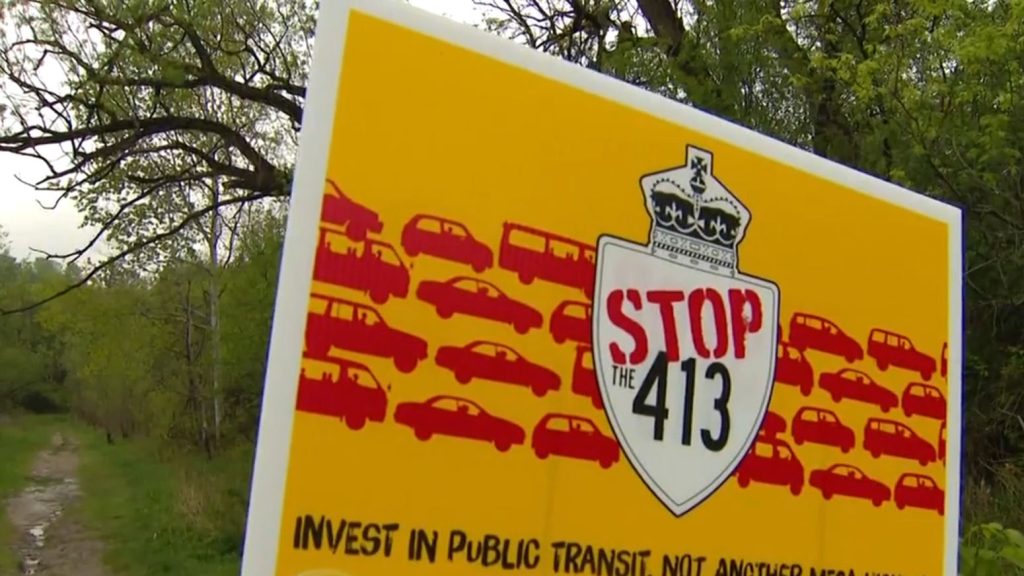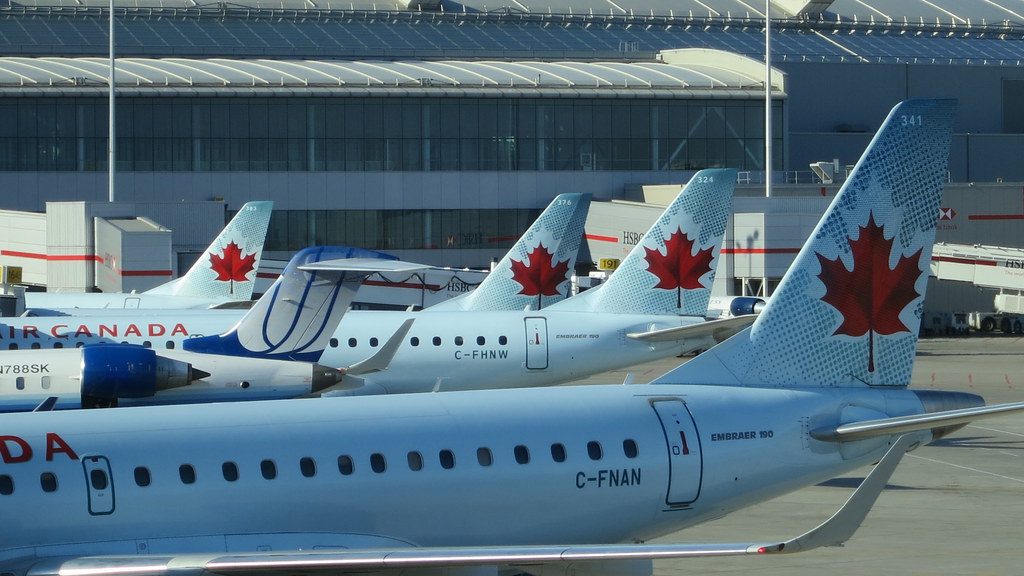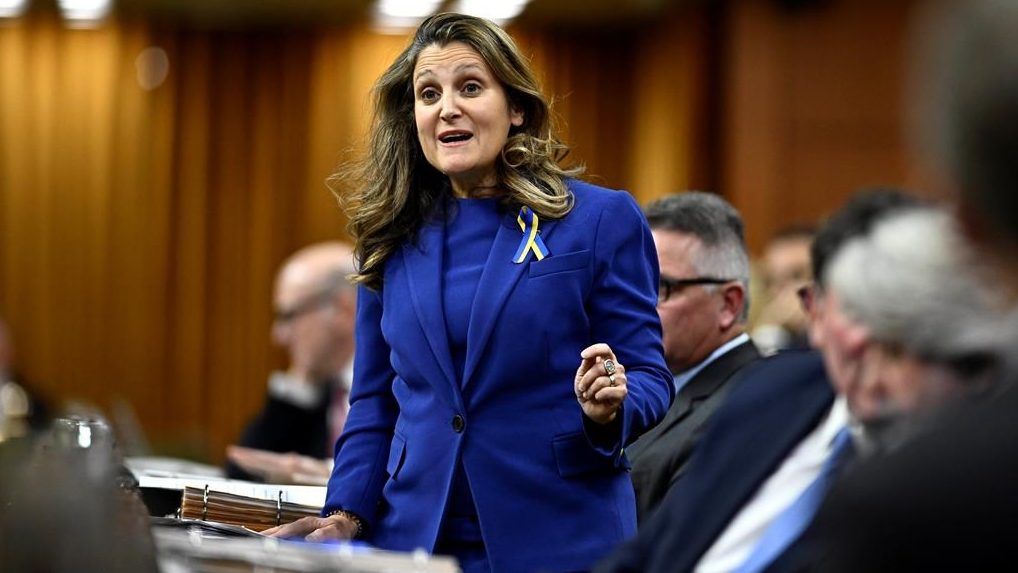Ontario gave Ornge $730M but didn’t oversee air ambulance: auditor report
Posted March 21, 2012 12:08 pm.
This article is more than 5 years old.
Premier Dalton McGuinty says he’s “concerned” by allegations of questionable business practices at Ontario’s air ambulance service.
In a report released Wednesday, Ontario auditor general Jim McCarter said Ornge received hundreds of millions of taxpayer dollars but the governing Liberals failed to sufficiently monitor the agency as it used the money to make questionable business deals.
McGuinty said Wednesday night that his government will act on McCarter’s recommendations.
And McGuinty said if an Ontario Provincial Police investigation finds public funds have been misused, the government “will take all steps necessary to recover those funds.”
McCarter’s report called Ornge “a textbook example of what happens when the government doesn’t get the information it needs to properly do its job.”
McCarter found a “number of examples of questionable business practices” at Ornge, which has been mired in controversy for months over high salaries and allegations that public dollars may have been used for personal gain.
“We saw the appearance of possible self-interest that we questioned whether was appropriate,” McCarter said.
“Hence that’s why we went to the ministry and said to the watchdog, this doesn’t pass the smell test.”
Ornge is already under a criminal probe for “financial irregularities” — a huge embarrassment for the minority Liberals.
McCarter’s report only added to their troubles, showing that on top of the $730 million the air ambulance service received from the government over five years, it also borrowed almost $300 million — with the province’s blessing — in 2009.
Government funding to Ornge rose 20 per cent in its first four years of operation, even though the number of patients transported by air fell during that period, he said.
“There’s no question there’s probably tens of millions of dollars that we didn’t get value for money for,” McCarter said.
Ornge used the borrowed money to buy more airplanes and helicopters than it needed, some of which will be sold at a loss, McCarter’s report found. About $210 million in assets bought with ministry funds were then transferred to companies that were beyond the government’s control.
Ornge also used public dollars to repay the debt, for which taxpayers are still on the hook, McCarter said.
McGuinty thanked McCarter for his report and promised government action.
“I want you to know that we will act on the auditor’s recommendations,” he said.
“If the OPP find that public money has been misappropriated, be assured, we will take all necessary steps to recover those funds,” McGuinty said.
McCarter also raised concerns about patient safety, saying Ornge’s method for measuring response time made it difficult to assess whether it was living up to its obligations. Ornge measured it as the time elapsed between receiving full patient information from the caller and when it told the caller potential timing for sending an air ambulance, rather than the time between getting a call and delivering the service.
Ornge told the health ministry early last year that it planned to create a web of subsidiaries, he said. But the government didn’t look into the arrangement, even though it knew some of the companies would be directly involved in delivering services but would be outside of ministry oversight, the report found.
“So what began in 2006 as a not-for-profit company providing ambulance services became a mini-conglomerate that created a number of non-profit and for-profit spin off companies,” McCarter said.
“Of particular concern to us was the fact that certain of these companies were owned by Ornge’s president, members of the senior management team and the board of directors.”
Ornge’s corporate structure was so complicated, even its lawyers — who were paid with the borrowed funds that the province will now have to repay — couldn’t explain how it worked, McCarter said. And there may be more Ornge subsidiaries that haven’t been found yet.
Many of these for-profit and not-for-profit subsidiaries provided most of the air ambulance and administrative services, then billed Ornge for the cost. But under the agreement it signed with the government — of which the ministry should have been “much more skeptical” — the province had no right to access any of the records.
The paper trail stops there, McCarter said.
Ornge’s former managers and directors refused to give him records related to subsidiaries that weren’t directly funded by the province, including who the shareholders were, how much senior management was being paid, and details about the millions of dollars it paid to a law firm that provided advice on its business deals.
Obtaining any information from Ornge was like “pulling teeth” and there was a “real culture of fear and intimidation” among paramedics and other lower-level staff not to step out of line, he said.
Ornge’s top five senior executives received $2.5 million in 2010, which wasn’t disclosed to the public. The board chairman received over $200,000, excluding expenses, McCarter told a news conference. Some of it came from the borrowed funds, the report said.
“They were being paid an awful lot of money for what they were doing,” McCarter said.
“Was there anything criminal with respect to that? Well, I think the OPP is in looking at that.”
One of Ornge’s for-profit subsidiaries purchased a building for $15 million, then leased it back to the publicly funded agency at a rate that was 40 per cent higher than fair-market rent. That allowed the subsidiary to obtain $24 million in financing for the building, $9 million of which was intended to flow back to a related for-profit company that was owned by a senior Ornge manager.
His report also found that Ornge received $65 million from the government to create a land ambulance service to transport 20,000 patients a year starting in 2008, but it transported only 15 per cent of the projected number at a per-patient cost that was nearly as high as transporting them by air.
Ornge’s former management and board of directors, who were replaced in January, also refused to provide the agreement relating to a $4.8-million payment that a European company — which sold aircraft to Ornge for $148 million — made to one of the subsidiaries to provide “future marketing and other services.”
The company also provided another $2.9 million to Ornge’s charitable foundation, $500,000 of which was spent on two custom-made motorcycles to promote Ornge.
It’s been reported that a Ornge subsidiary controlled by then-chief executive Chris Mazza received $6.7 million from helicopter firm AgustaWestland after Ornge used provincial funds to buy 12 helicopters from the company.
McCarter and Mazza’s replacement, Ron McKerlie, say they found no evidence that the work performed by the Ornge subsidiary reflected the amount of money it was paid.
AgustaWestland has denied any wrongdoing, saying the propriety of its actions “cannot be questioned” and that it would co-operate fully with any inquiries from a “competent authority.”
McCarter sent a draft copy of his report to the health ministry last September, but “they were not immediately convinced that there were some serious issues at Ornge.”
“I think they had an unrealistic, perhaps, amount of trust in the service that was being delivered,” he said.
But Health Minister Deb Matthews said she wasn’t aware of any serious problems until December, when she sent in a team of forensic auditors to look at Ornge’s books.
“I am focused on fixing the problem. I am taking more steps today by introducing legislation to ensure that this does not happen again. I make no excuses for anybody.”
The new legislation is expected to tighten the leash on Ornge, and the province has also signed a new performance agre
ement with the agency.
Progressive Conservative health critic Elizabeth Witmer accused the government of sweeping the problems at Ornge under the carpet until after the Oct. 6 election.
NDP Leader Andrea Horwath said taxpayers should be “seeing red” over the Ornge scandal.
“I believe we’ve only really seen the tip of the iceberg when it comes to what’s happened in Ornge, but that should be enough to sink this minister once and for all,” she said.
Matthews admitted the 2005 deal her government signed with Ornge that effectively tied its hands wasn’t adequate. But while she’s “sickened” by the actions of Ornge’s former management, she is refusing to step down over the scandal.
Under the new legislation, Ornge wouldn’t be able to sell assets or take on more debt without ministry approval. It would also strengthen conflict of interest provisions, give the ministry more audit and inspection powers and create a new patient advocate and complaint process to ensure patient safety.
In addition to the criminal probe and McCarter’s report, the Ministry of Health’s emergency health services branch is also investigating 13 incidents related to air ambulance transports, three of which involved deaths of patients.










